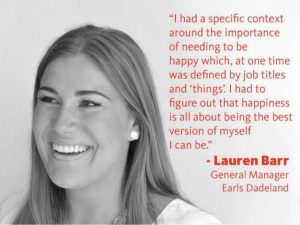Podcast: Play in new window | Download
 Context is one of the most important things to learn and master… That context is decisive.
Context is one of the most important things to learn and master… That context is decisive.
I have been trying to teach context, but context is a very difficult concept: it is like looking at the sky behind the clouds.
A cloud against a blue sky is a very different cloud than against a black twirling mass of angry space…
When you have a feeling, a sensation, like a kick in the stomach, it means different things when you are pregnant, when you are psychically attacked, when the phone rings… etc. The kick is the same, the context is what changed.
Mostly people won’t provide you with context for their communication: they don’t think you need it: they assume you know it. But you don’t, and when you don’t know the context, the default context steps in.
 The default context for humanity is “there is something wrong with me, with you, with it… there is something wrong here”
The default context for humanity is “there is something wrong with me, with you, with it… there is something wrong here”
Against that backdrop, against that sky, in that context, anything that happens is bad news, anxiety generator, and there goes your peace of mind, and power… again.
In this quote from Roy Williams, another aspect of context is discussed: the context of your work… Read it… it’s good.
“When We Don’t Fly, People Die.”
“So there I was, first time in Iraq, officer in charge, first time under fire. I had been studying at the Air Force Academy for 4 years. I had a master’s degree in leadership. And I was scared. You know, the first time I heard the BOOMs, the sirens. And I was hunkered down by the sandbags with my flak vest over me, and I won’t say the words that were coming out of my mouth, but knowing that a leader should be courageous did not make me courageous. Knowing that a leader ought to be a certain way did not give me access to being that way. And five, six years of leadership education didn’t give me what I needed in that moment.”
– Kari L. Granger
I was on the phone with a good friend who spent 6 days in a high-level conference on leadership at a major university last week. Forty speakers presented all the latest research. I asked my friend to share with me what he felt to be the most interesting thing he learned.
“The importance of context,” he said.
“Explain.”
“We don’t choose our words and our actions as carefully as we think we do. Our thoughts, attitudes, words and actions are dramatically affected by context.”
“I’m not sure I’m getting it”
“Every situation has a context that shapes the way the situation occurs for us, and consequently the way we interact with the situation.”
“I’m still not sure I get it.” (I’m pretty dense sometimes.)
My friend then told me about the speaker that fascinated him the most. “A young woman spoke to us who had been in charge of an aircraft maintenance unit in Iraq. Sixty-five percent was the standard for ‘mission success’ in repairing damaged aircraft within a certain period of time. Her maintenance unit was operating with a 58 percent mission success rate until she got a call one morning at 2:30AM to get a team together, fly into a combat area, fix a broken aircraft and bring it back. It was during that trip that she met the men and women whose lives depended on the aircraft she was repairing. They told her, ‘When these don’t fly, we die.’ Her context changed. She repaired that airplane with bullets flying all around her, flew it back to her maintenance unit and the very next day her team began operating with a mission success rate of 100 percent.”
Google is wonderful, isn’t it? Even though my friend couldn’t recall the young woman’s name, it took me only about 30 seconds to find a 1 hour and 46-minute video of Kari L. Granger telling that story in detail. The image of her above the title of today’s memo and all of the quotes you’ll find herein were transcribed from it.
“I started meeting the guys that were relying on our aircraft.
You know, the brothers, the husbands, the fathers, the sons.
And I started to learn the consequences of what happened when our aircraft didn’t make it; the consequences when our aircraft wasn’t there to pick people up or to drop needed equipment. And a particular model of our aircraft that held electronic jamming equipment; what happened when they didn’t fly; the consequences of this.
I started to learn the impact of our 58 percent mission success rate. On real faces. And what I learned was that when we don’t fly, people die. It altered the whole thing for me. Quite literally, ‘When we don’t fly, people die.’ And I’m talking both sides die. And the daily, the small, moment-by-moment tasks started to have a whole new meaning.”
Context. Now I get it.
Here’s what I’m going to do: I’m going to help my staff see exactly what happens when the ads we write and the media we negotiate fail to bring in customers. I’m going to share with them – just as Kari Granger shared with her maintenance team – exactly what I’ve seen happen when advertising doesn’t work.
I’m going to do my best to show my people the life-changing importance of the daily, small, moment-by-moment tasks we do each day. I’m going to help them understand what happens when we do our job well. And what happens when we don’t.
I’m really glad my friend attended that 6-day conference. I’m really glad he chose to give me the gleaming nugget of gold that Kari gave to him.
And now that nugget of gold lies warm in your open palm.
What are you going to do with it?
Roy H. Williams
I am not sure I said it clearly and loudly enough, but if you don’t set the context, the default context steps in… and misery begins. Therefore the most important tool you have is the ability to set the context.
The context is up to you. You are free to set any context, really. It’s a skill, and I am going to teach it in my next series of free webinars…
https://evp-50116959de4b9-dd521b5ed563ee25508422182c681a30.s3.amazonaws.com/karilgranger.mp4

try to come to some of the webinars https://www.yourvibration.com/webinar
Very nice. Context is so very important. When I had a religion, i had a context for all my actions. Without one, even thought I have bragging rights for a free mind, I cannot find a way to create a context of meaning for my life and work. Some can. i don’t really want to be part of a meaning-granting organization just to feel safe. I don’t feel safe. I feel unsettled. I actually think its a good thing, but its getting a bit old…